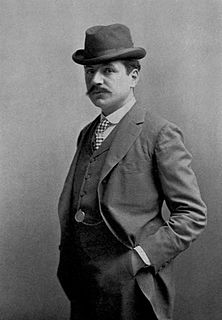A Quote by Francois de La Rochefoucauld
There are some people upon whom their very faults and failings sit gracefully; and there are others whose very excellencies and accomplishments do not become them.
Quote Topics
Related Quotes
In every crisis, people do not respond like a school of fish. Some people become immobilized. Some people become very angry, some commit suicide, and other people begin to find solutions. And visionary organizers look at those people, recognize them and encourage them, and they become leaders of the future.
We need to do what I call visionary organizing. Recognize that in every crisis, people do not respond like a school of fish. Some people become immobilized. Some people become very angry, some commit suicide, and other people begin to find solutions. And visionary organizers look at those people, recognize them and encourage them, and they become leaders of the future.
Let others lead small lives, but not you. Let others argue over small things, let them complain over what might have been, but not you. Let others cry over small hurts, let them be discouraged, let them be revengeful and vindictive, but not you. Let others leave their future in someone else's hands, let them become materialistic and empty, but not you. Let others become ungrateful and stop praying, but not you! Let others give up, but not you! For you know in whom you believe and you know that He is always able. Now, that's you!
There is no more reason to accuse ourselves excessively of our failings than to excuse them overmuch. He who goes overboard in self-criticism often does so in order not to suffer others' criticisms, or else does so out of a kind of vanity that wishes to make others believe that he knows how to confess his faults.
Now see what a Christian is, drawn by the hand of Christ. He is a man on whose clear and open brow God has set the stamp of truth; one whose very eye beams bright with honor; in whose very look and bearing you may see freedom, manliness, veracity; a brave man--a noble man--frank, generous, true, with, it may be, many faults; whose freedom may take the form of impetuosity or rashness, but the form of meanness never.
The concept of God can be very interfering for some and very opening for others. There are many people who say it's not God, or a personal God, but it's an energy, it's a force, it's a unifying conceptualization of the universe. For some people it can be a very positive, and a beneficial way of looking at things. But then for others it can get in the way. It depends to a large extent on how one defines what God is especially if it becomes exclusive and a hate filling definition.
When you write, it’s like braiding your hair. Taking a handful of coarse unruly strands and attempting to bring them unity. Your fingers have still not perfected the task. Some of the braids are long, others are short. Some are thick, others are thin. Some are heavy. Others are light. Like the diverse women of your family. Those whose fables and metaphors, whose similes and soliloquies, whose diction and je ne sais quoi daily slip into your survival soup, by way of their fingers.
Before prayer, endeavour to realise Whose Presence you are approaching and to Whom you are about to speak, keeping in mind Whom you are addressing. If our lives were a thousand times as long as they are we should never fully understand how we ought to behave towards God, before Whom the very Angels tremble, Who can do all He wills, and with Whom to wish is to accomplish.



































